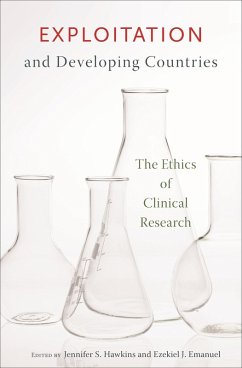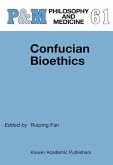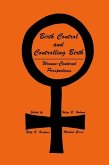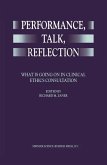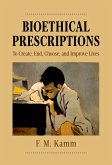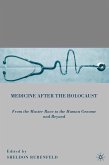When is clinical research in developing countries exploitation? Exploitation is a concept in ordinary moral thought that has not often been analyzed outside the Marxist tradition. Yet it is commonly used to describe interactions that seem morally suspect in some way. A case in point is clinical research sponsored by developed countries and carried out in developing countries, with participants who are poor and sick, and lack education. Such individuals seem vulnerable to abuse. But does this, by itself, make such research exploitative?
Exploitation and Developing Countries is an attempt by philosophers and bioethicists to reflect on the meaning of exploitation, to ask whether and when clinical research in developing countries counts as exploitative, and to consider what can be done to minimize the possibility of exploitation in such circumstances. These reflections should interest clinical researchers, since locating the line between appropriate and inappropriate use of subjects--the line between exploitation and fair use--is the central question at the heart of research ethics. Reflection on this rich and important moral concept should also interest normative moral philosophers of a non-Marxist bent.
In addition to the editors, the contributors are Richard J. Arneson, Alisa L. Carse, Margaret Olivia Little, Thomas Pogge, Andrew W. Siegel, and Alan Wertheimer.
Exploitation and Developing Countries is an attempt by philosophers and bioethicists to reflect on the meaning of exploitation, to ask whether and when clinical research in developing countries counts as exploitative, and to consider what can be done to minimize the possibility of exploitation in such circumstances. These reflections should interest clinical researchers, since locating the line between appropriate and inappropriate use of subjects--the line between exploitation and fair use--is the central question at the heart of research ethics. Reflection on this rich and important moral concept should also interest normative moral philosophers of a non-Marxist bent.
In addition to the editors, the contributors are Richard J. Arneson, Alisa L. Carse, Margaret Olivia Little, Thomas Pogge, Andrew W. Siegel, and Alan Wertheimer.

